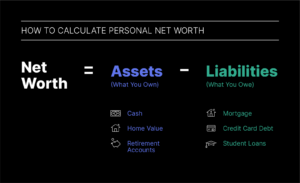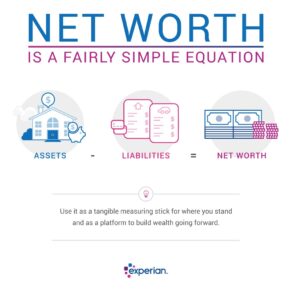
Robert Kiyosaki, renowned for his influential financial literacy books and seminars, has become a central figure in personal finance education. His most famous work, “Rich Dad Poor Dad,” has sold millions of copies and inspired countless individuals to rethink their financial strategies. Beyond his literary success, Kiyosaki has built a significant financial empire.
In this blog post, we will explore Robert Kiyosaki’s net worth, the sources of his wealth, and how his financial philosophies have contributed to his financial achievements.
The Financial Journey of Robert Kiyosaki
Born on April 8, 1947, in Hilo, Hawaii, Robert Kiyosaki grew up in a middle-class family with a traditional approach to finances. He graduated from the United States Merchant Marine Academy and served in the Vietnam War, which shaped his early career and worldview.
After leaving the military, Kiyosaki ventured into various business pursuits, including selling nylon wallets and investing in real estate. However, it was his transition into financial education that would cement his status as a financial guru.
Kiyosaki’s seminal book, “Rich Dad Poor Dad,” was published in 1997. The book presents a contrast between the financial philosophies of his “rich dad” and his “poor dad,” advocating for financial independence through investing in assets, understanding cash flow, and embracing entrepreneurial ventures.
The book’s success led to a series of follow-ups, including “Cashflow Quadrant” and “Rich Dad’s Guide to Investing,” which further solidified Kiyosaki’s position as a leading financial educator.
Breakdown of Robert Kiyosaki’s Net Worth
As of 2024, estimates of Robert Kiyosaki’s net worth range from $80 million to $100 million. This figure reflects his diverse sources of income and his strategic approach to financial management.
Book Sales and Royalties
Kiyosaki’s primary source of wealth comes from his books. “Rich Dad Poor Dad” alone has sold over 40 million copies worldwide and remains a bestseller in the personal finance genre. The book’s enduring popularity ensures a steady stream of royalties, contributing significantly to Kiyosaki’s net worth.
Additionally, his subsequent books, which expand on the principles outlined in his first book, continue to generate income through sales and royalties.
Seminars and Public Speaking
Kiyosaki’s seminars and public speaking engagements are another substantial source of income. His “Rich Dad” seminars, which cover various aspects of financial education, entrepreneurship, and investing, attract thousands of attendees.
These seminars often come with a hefty price tag, and the revenue generated from ticket sales, materials, and upselling additional products contributes to his financial success. Public speaking engagements and workshops also provide significant income and enhance his brand’s visibility.
Real Estate Investments
A key element of Kiyosaki’s financial strategy is real estate investment. Kiyosaki advocates for real estate as a means of building wealth and achieving financial independence. His personal investments in real estate include residential properties, commercial real estate, and development projects.
These investments not only provide a steady income stream but also appreciate in value over time, contributing to his net worth. Kiyosaki’s real estate ventures align with the principles he espouses in his books, reinforcing his financial success.
Business Ventures and Partnerships
Kiyosaki has been involved in various business ventures and partnerships, which have diversified his income sources. These ventures include financial education companies, investment platforms, and entrepreneurial projects.
By leveraging his expertise and brand, Kiyosaki has been able to establish and grow businesses that complement his financial philosophy. These business endeavors contribute to his overall net worth and expand his influence in the financial world.
Licensing and Merchandising
The “Rich Dad” brand extends beyond books and seminars into licensing and merchandise. Kiyosaki’s brand encompasses educational games, financial software, and other products designed to promote financial literacy.
Licensing his brand for various products and services generates additional revenue and enhances his financial portfolio. These ventures also help in maintaining the brand’s prominence and attracting new audiences.
Robert Kiyosaki’s Financial Philosophy and Its Impact
Robert Kiyosaki’s net worth is a direct reflection of his financial philosophy, which emphasizes the importance of financial education, investing in assets, and entrepreneurial thinking. His teachings focus on:
Financial Education: Kiyosaki believes that traditional education does not adequately prepare individuals for financial success. His books and seminars aim to fill this gap by providing practical advice on money management, investing, and wealth-building strategies.
Investing in Assets: Central to Kiyosaki’s philosophy is the idea of investing in assets that generate passive income. He advocates for real estate, stocks, and businesses as vehicles for building wealth. By focusing on acquiring income-generating assets, individuals can achieve financial independence and security.
Entrepreneurial Thinking: Kiyosaki encourages individuals to adopt an entrepreneurial mindset and explore opportunities beyond traditional employment. He emphasizes the importance of taking calculated risks, leveraging resources, and continuously seeking ways to create and grow wealth.
Comparing Robert Kiyosaki’s Wealth
When comparing Robert Kiyosaki’s net worth to other financial educators and personal finance authors, it is clear that he stands out due to his extensive influence and diverse income streams. While figures like Dave Ramsey and Suze Orman also have significant financial success, Kiyosaki’s wealth is notable for its breadth and the global reach of his brand.
Challenges and Criticisms
Despite his financial success, Robert Kiyosaki has faced criticism and controversy. Some critics argue that his financial strategies are overly aggressive or speculative, and there have been concerns about the effectiveness of his seminars and products.
Additionally, Kiyosaki’s personal financial struggles and bankruptcy filings in the past have led to debates about the practicality of his teachings. Nonetheless, his ability to build and sustain a significant net worth reflects his resilience and adaptability in the financial realm.
The Legacy of Robert Kiyosaki
Robert Kiyosaki’s financial legacy extends beyond his net worth. His contributions to financial education have empowered millions to take control of their finances and pursue wealth-building strategies. Through his books, seminars, and public speaking, Kiyosaki has played a pivotal role in promoting financial literacy and encouraging individuals to think differently about money.
As Kiyosaki continues to write, speak, and invest, his financial success is likely to endure. His net worth not only reflects his personal achievements but also serves as a testament to the impact of his financial philosophy. By advocating for financial education and strategic investing, Robert Kiyosaki has established himself as a prominent figure in the world of personal finance.
Conclusion
Robert Kiyosaki’s net worth is a reflection of his remarkable career and financial acumen. From the success of “Rich Dad Poor Dad” to his investments and business ventures, Kiyosaki has built a substantial financial empire.
His wealth is a testament to his ability to translate his financial philosophy into practical success. While his teachings have sparked debate and controversy, there is no denying the significant impact he has had on financial literacy and personal finance education.
As Kiyosaki continues to influence and inspire, his financial legacy is likely to endure, further solidifying his place as a leading voice in the world of wealth-building and financial education.





